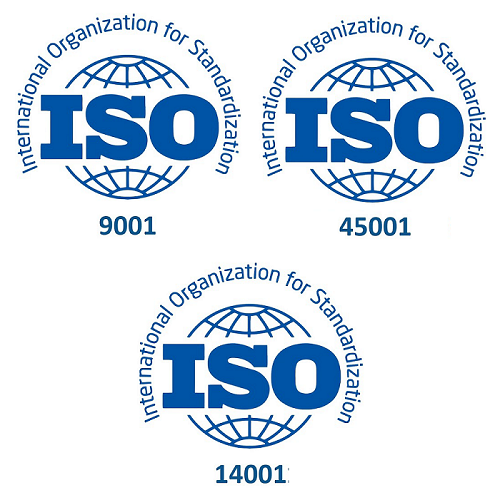
International Standards Organization (ISO)
International Standards Organization (ISO) is an independent organization that sets the standards for businesses in terms of quality, safety, and efficiency of products. An ISO registration enhances the reputation of your services or products. There are different types of ISO certification like ISO 9001, ISO 27001, ISO 45001, ISO 22000, ISO 13485, ISO 5001, ISO 14001 etc.
Of all the ISO standards, ISO 9000 series is the most popular. ISO 9000 is a set of international standards for quality management and quality assurance. The ISO 9000 family of standards like ISO 9001:2015, ISO 19011:2018, ISO 9000:2015 help organizations meet customer satisfaction and regulatory requirements and achieve continual improvement. ISO 9000 lays the fundamentals for Quality Management System (QMS).
QMS is structured framework of policies, processes and procedures for planning and execution in the core business areas of an organization. ISO 9001:2015 is the international standard for QMS. It is globally recognized and accepted and can be implemented by all small, medium and large enterprises to enhance efficiency, quality and profits. It also helps in reducing waste, and lowering costs.
Benefits of an ISO Certification for a Company
► It gives an organization a platform that is recognized by game changers and decision makers.
► Identification of recurrent issues and resolving them saves valuable time and financial support.
► Processes become more efficient which improves the system.
► They give a company a competitive edge needed during contract tenders
► The same resources lead to more value and worth.
► The perception the customers hold on business increases tenfold and consequently; satisfaction rises.
An increasing number of organizations are opting for ISO 9001 certification because the standard benefits them by consistently improving their outcomes and processes, and because it is a valuable prerequisite for customer acquisition.
The certification is bound to exponentially benefit an organization if ISO 9001 is implemented with the right legal guidance.
Documents required for ISO Registration Process
When applying for an ISO Certification, every business will need to submit the following documents:
► Proof that the business is registered. This can be done through:
♦ Certificate of Incorporation
♦ GST Certificate
♦ MSME Certificate
► A letterhead or visiting card of the business.
► The details of an invoice that includes:
♦ Sale Invoice
♦ Purchase Invoice
We are dealing in these following ISO:
|
ISO 9001:2015 (QMS) |
CE Compliance |
ISO 22612:2015 |
|
ISO 14001:2015 (EMS) |
50001-2018(Energy Management) |
ISO 14683:2017 |
|
ISO 45001:2018 (OHSAS) |
55001-2014 (Asset Management) |
FCC ( Compliance) |
|
ISO 22000:2005 (FSMS) |
TS 16949:2009 (Compliance) |
GHP (Compliance) |
|
ISO 27001:2013 (ISMS) |
ISO 29990:2010 |
HALAL ( Compliance) |
|
ISO 13485:2016 |
ISO 29993:2017 |
CMMI |
|
ISO 20000 |
ISO 16602:2017 |
GMP-WHO |
|
HACCP |
ISO 16603:2004 |
FDA |
|
FSSC-22000 |
ISO 16604:2004 |
SEDEX ( Compliance) |
|
GMP Compliance |
ISO 22611:2003 |
SA 8000 |
|
EN 149 |
ANSI/SEA/ASTM |
EN 166:2002 |
